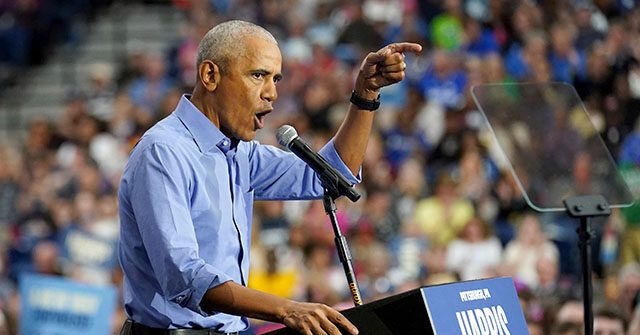In recent remarks made during a campaign event in Pittsburgh, former President Barack Obama suggested that black men are not supporting Vice President Kamala Harris in her presidential bid due to sexist attitudes. These statements have ignited a backlash from black conservative men, who accuse Obama of misrepresenting the sentiments of the black community and attempting to coerce them into aligning with the Democratic Party. Obama lamented that Harris lacks the same level of support among black male voters as he did in 2008, suggesting that her experiences and background should resonate positively with this demographic, in contrast to an apparent inclination to support former President Donald Trump.
Obama’s comments raised significant concerns among his critics, particularly relating to the notion that black men’s hesitance to back Harris stems from an intrinsic aversion to female leadership. He argued that such a stance reflects an anti-women sentiment and directly challenged the legitimacy of their reasons for supporting other candidates. His assertion that supporting someone with a history of derogatory treatment towards black individuals indicates a twisted understanding of masculinity was met with disdain from those who felt he was oversimplifying their political choices. Critics pointed out that black support for Harris is notably lower than it was for either Hillary Clinton in 2016 or Joe Biden in 2020, indicating a shift in political dynamics that Obama seemed unwilling to acknowledge.
The commentary from Obama has sparked responses from notable figures like Vernon Jones, a former Georgia state representative, who labeled Harris as ‘Madam Lock Up A Brother’ and demanded an apology from the former president. Jones’s remarks underscore a pervasive sentiment among some black conservatives that elite figures like Obama are disconnected from the realities of the black community, particularly those living in urban environments. His call for an apology reflects a broader frustration with perceived patronization from established political figures who assert they have the authority to dictate voting preferences to minority groups.
Young conservative activist CJ Pearson further fueled the fire by expressing disdain for Obama’s perceived dismissal of black men’s grievances, asserting that the ongoing issues affecting their communities—such as crime and poverty—remain unaddressed despite their loyalty to the Democratic Party. Pearson’s critique emphasizes a growing sentiment among younger black conservatives who feel underrepresented and disregarded, failing to see substantive improvements despite historical support for Democratic candidates. This generational divide is crucial, as it highlights a shift in political engagement and perspective among the black male demographic, particularly younger voters.
Rob Smith, another conservative media personality, expressed indignation at the attempt to shame black men into supporting Harris, declaring his intention to vote for Trump unequivocally. He poignantly criticized Obama for trying to play a paternal role in the lives of black men, contesting the former president’s authority to dictate their choices. Smith’s remarks align with a broader response from other black conservatives, many of whom echoed similar sentiments on social media platforms, asserting their autonomy and right to independently assess political figures rather than yield to perceived cultural expectations.
Political analysts have weighed in on this controversy, emphasizing that Obama’s critique neglects the genuine concerns of black constituents regarding their communities’ conditions. Boyce Watkins compared Obama to a “deadbeat dad,” illustrating the disconnect that many feel towards his authoritative stance. This notion resonates widely among black men asserting their own agency, as they express fatigue over being lectured by figures who do not reflect their lived experiences. The discourse surrounding the 2024 election is becoming increasingly complex, with many asserting their right to choose representatives who authentically reflect their challenges and aspirations, irrespective of party affiliation. Overall, this situation illustrates the deep-rooted tensions within the black community regarding political allegiance, representation, and the social implications of race and gender in leadership.

